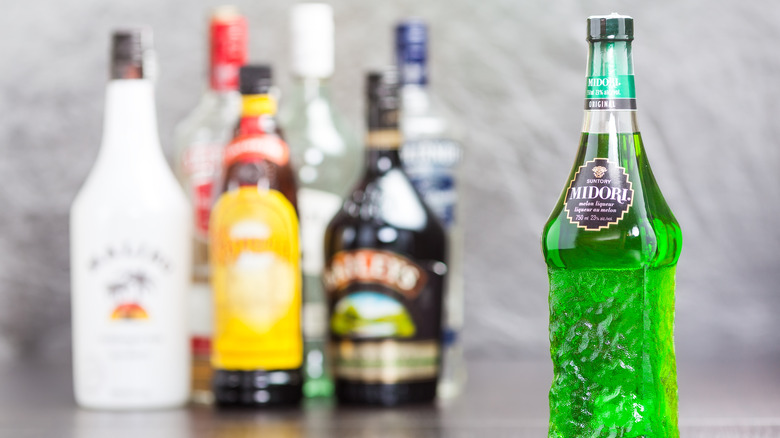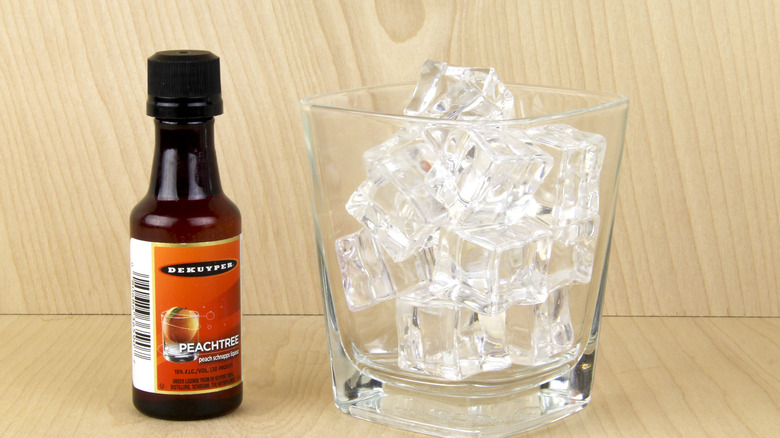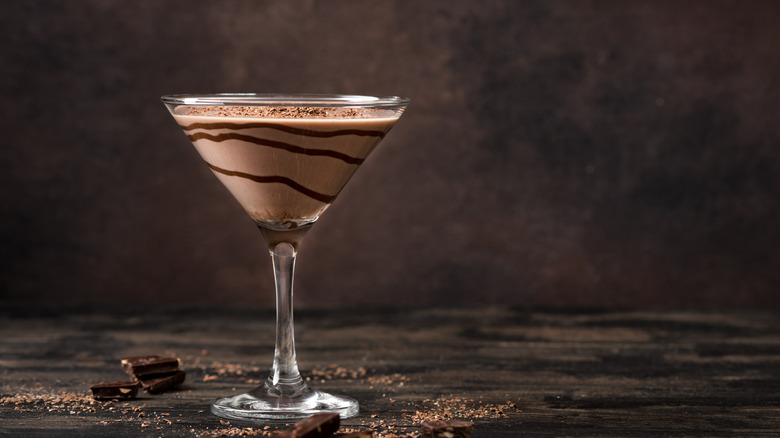What Exactly Is Imitation Liqueur, And Is It Worth Buying?
Despite having similar pronunciations, "liquor" and "liqueur" aren't the same thing. Liquors are spirits distilled from fermented grains, fruits, or vegetables, with only water added to the process. Liqueur, meanwhile, is liquor flavored with various ingredients (usually fruits, but there are other varieties, including coffee, chocolate, and Irish cream) and typically doused with a truck-load of sweeteners. The end result is a much tastier, more drinkable product — albeit one whose higher sugar content makes it a bit more likely to make you sick.
Liqueurs also feature in a variety of mixed drinks. (If you've ever had an Alabama slammer, a white Russian, or an old-fashioned, you're familiar with the concept.) One of the most famous drinks in the world also features liqueur: margaritas, which are typically made with Cointreau.
But while most liqueurs are the real deal, some are made using less-than-authentic ingredients. Welcome to the world of imitation liqueurs.
What are imitation liqueurs?
Imitation liqueurs are, simply put, a cheap alternative to more expensive, full-fledged liqueurs. In addition to the standard sugar, water, and alcohol, they include artificial flavoring and coloring. They also often (though not always) have less alcohol — another cost-saving move by the companies that produce them.
Most liqueurs you're familiar with (Kahlua, Midori, Campari, Aperol, etc.) aren't artificial, but one major brand you might know almost exclusively uses imitation liqueur: DeKuyper.
The advantage to imitation liqueurs, and their real purpose, is that you can get all sorts of flavors you couldn't achieve using traditional ingredients, as well as recreating the flavors for people who couldn't otherwise drink them. (After all, you can't exactly create a dairy-free whipped cream liqueur using actual whipped cream.) Imitation liqueurs thus allow people with lactose intolerance to drink dairy-esque cocktails without the fear of creating a biohazard in the bathroom later.
Are they worth it? How do they taste?
So, how do imitation liqueurs taste? Well, there does tend to be a vague chemical taste associated with a lot of imitation liqueurs. (You're probably familiar with the phenomenon if you've ever had some of the cheaper imitation liqueur brands.)
Then again, a lot of that can be covered up by creative drink wizardry. There's an entire profession known as mixologists (not the same thing as bartenders) whose job it is to essentially be chefs for alcoholic beverages.
As far as whether they're worth it, that depends on your personal tastes. The advantage of imitation liqueurs is that because they're cheaper to produce, those savings get passed on to the consumer (at least among reputable brands), making them cheaper to buy. Ultimately, the decision comes down to whether saving money is worth the lack of authenticity (and no judgment if it is).


